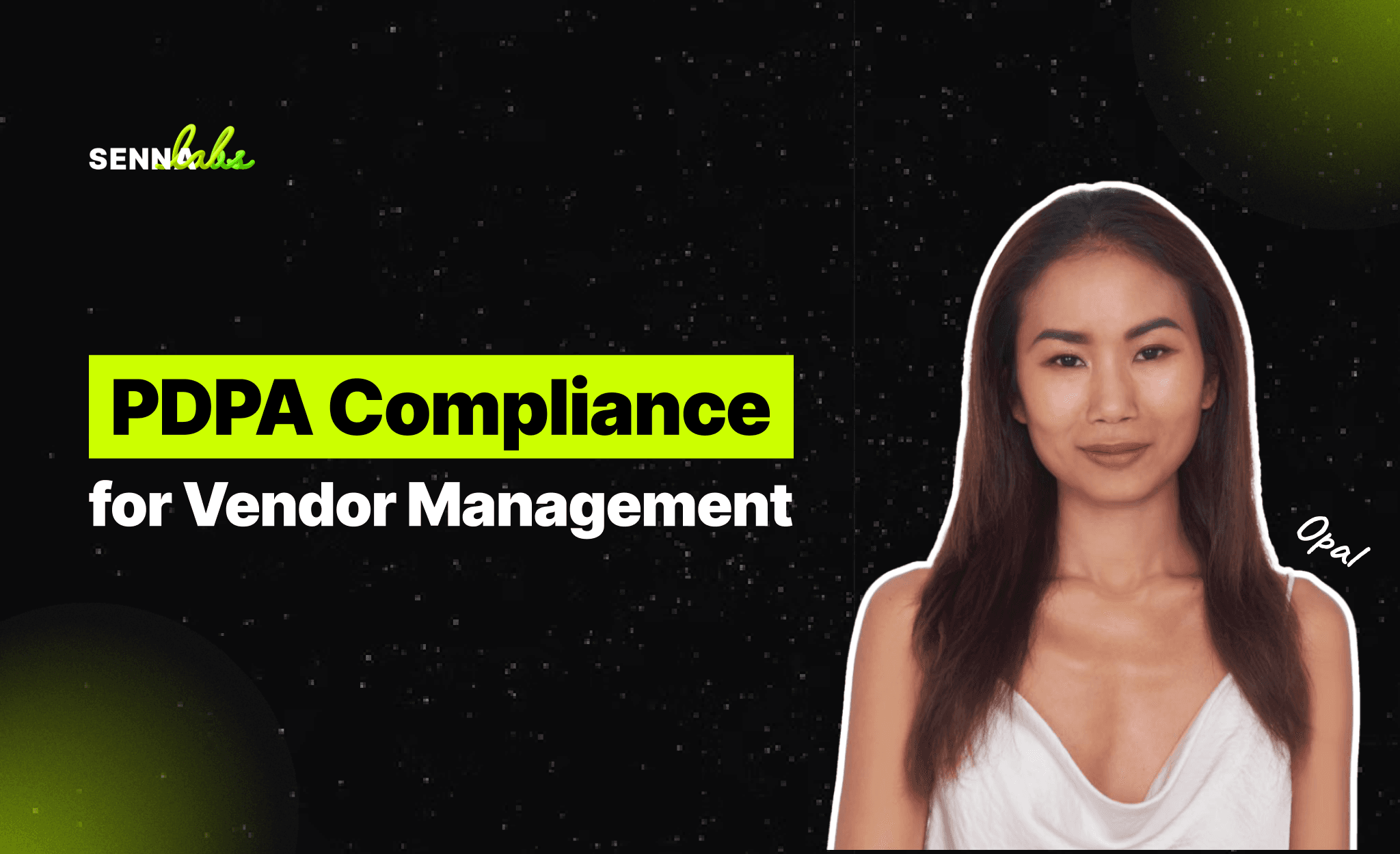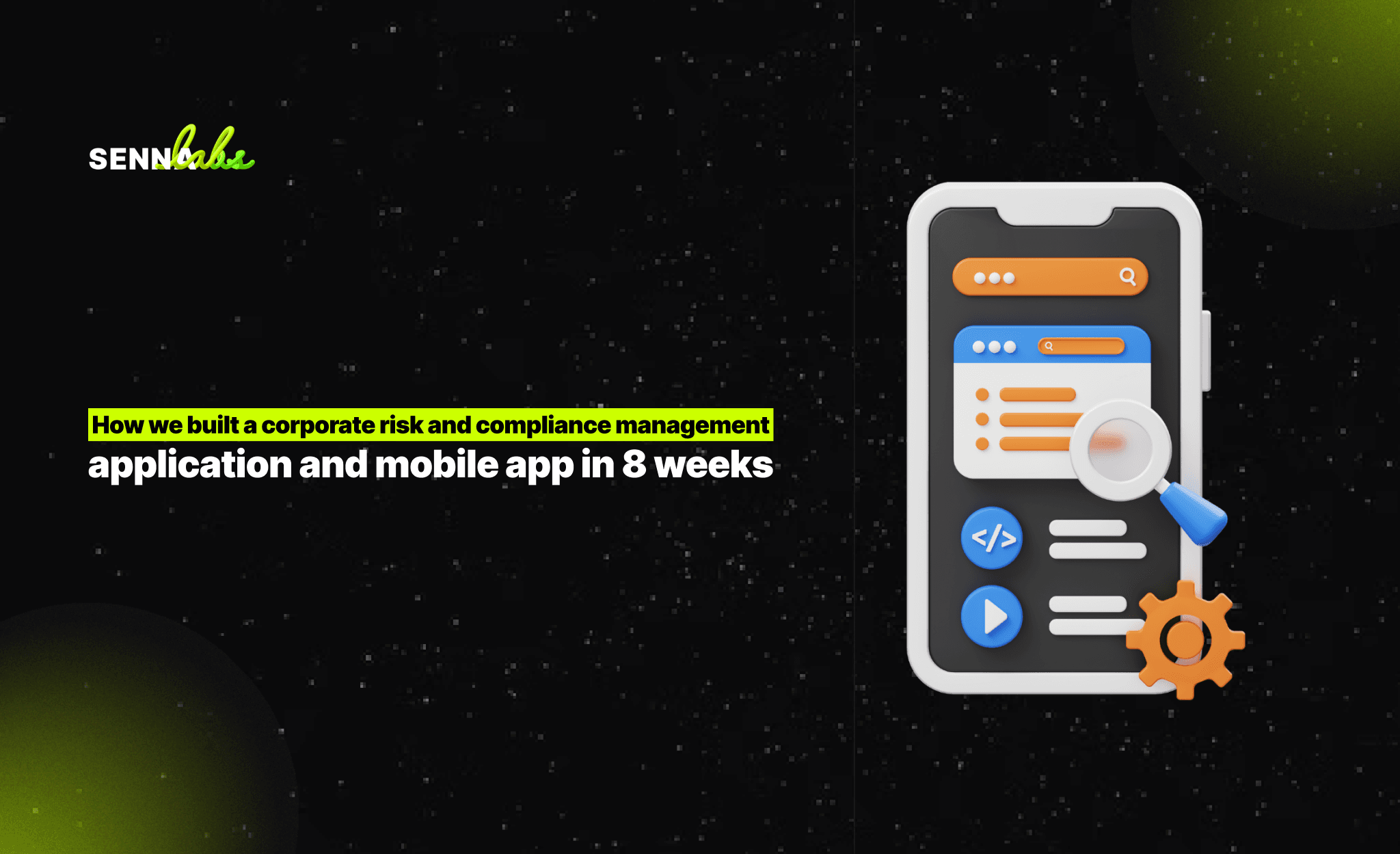Ensuring Accountability in Data Transfers: PDPA Compliance for Vendor Management
Share

In today's interconnected business world, companies often rely on third-party vendors and partners to perform critical services, from cloud storage to payment processing and customer support. However, these relationships introduce potential risks, particularly concerning data security and regulatory compliance. With the introduction of data protection regulations such as the Personal Data Protection Act (PDPA), businesses are now responsible for ensuring that their vendors and partners handle personal data securely and in compliance with legal requirements.
Effective third-party vendor management is essential for PDPA compliance. Companies must take proactive steps to review contracts, enforce data protection standards, and monitor vendor performance to prevent liabilities from data breaches or non-compliance. Without proper vendor oversight, businesses risk legal penalties, reputational damage, and customer trust loss.
This article explores how businesses can manage third-party vendors to ensure PDPA compliance. We will discuss key strategies for reviewing vendor contracts, enforcing data protection practices, and monitoring vendor compliance. Additionally, we will examine a real-world use case of how a manufacturing company strengthened its vendor contracts to reduce risk exposure by 30%.

Why Third-Party Vendor Management Matters Under PDPA
The Personal Data Protection Act (PDPA) holds businesses accountable for the protection of personal data, even when it is shared with third-party vendors. This means that if a vendor mishandles personal data or suffers a data breach, the company that owns the data may still be liable for the consequences.
Common third-party vendors that handle personal data include:
-
Cloud service providers: Store and process personal data in cloud environments.
-
Payment processors: Handle transactions and sensitive payment information.
-
Marketing agencies: Use personal data for customer targeting and communication.
-
Customer support providers: Access customer information to provide service and support.
Under PDPA, businesses must ensure that these vendors comply with the same data protection standards that apply to their own operations. Failure to do so can result in data breaches, non-compliance with PDPA, and costly legal penalties. Furthermore, customers expect businesses to protect their data, and any breach of trust can lead to reputational damage.
Key Areas of Third-Party Vendor Management for PDPA Compliance
To effectively manage third-party vendors and ensure PDPA compliance, businesses must focus on three critical areas:
-
Contractual Agreements
-
Compliance Enforcement
-
Ongoing Monitoring
1. Contractual Agreements: Establishing Clear Data Protection Terms
The foundation of third-party vendor management lies in strong contractual agreements. When entering into a partnership with any vendor that handles personal data, businesses must ensure that the contract explicitly outlines the vendor’s data protection responsibilities and compliance requirements under PDPA.
Key elements to include in third-party vendor contracts are:
a) Data Processing Clauses
Contracts must include data processing clauses that define the scope of personal data processing, such as what data will be collected, how it will be processed, and for what purposes. This ensures that the vendor only uses the personal data for the agreed-upon purposes and does not engage in unauthorized data processing activities.
For example, if a business hires a marketing agency to run email campaigns, the contract should specify that the agency will only use personal data for that purpose and not for any unrelated activities like selling data to third parties.
b) Data Security Requirements
Contracts should also specify the data security measures that the vendor must implement to protect personal data from breaches, theft, or unauthorized access. This may include encryption, access controls, regular audits, and incident response protocols. Vendors must be held to the same security standards as the business itself.
For instance, a cloud service provider storing customer information must commit to using robust security measures such as encryption, multi-factor authentication, and regular security audits to protect the data.
c) Breach Notification and Liability
In the event of a data breach, vendors must be contractually obligated to notify the business immediately. Contracts should outline the procedures for breach notification, including timelines for reporting and the information that must be provided. Additionally, the contract should specify the vendor’s liability in case of a breach caused by their negligence, including potential compensation or remediation efforts.
For example, a payment processor handling sensitive payment data must notify the business within 24 hours of discovering a breach and provide a detailed report on the incident.
d) Data Retention and Deletion Policies
Contracts should also address data retention and deletion policies. Vendors must agree to delete or return personal data once the contract ends or the data is no longer needed for the specified purpose. This ensures that personal data is not retained indefinitely, reducing the risk of future data breaches.
For instance, a customer support provider should commit to securely deleting customer data after the support contract ends to ensure that the data is not vulnerable to unauthorized access in the future.
2. Compliance Enforcement: Ensuring Vendor Adherence to PDPA
While contracts set the foundation for vendor compliance, businesses must take additional steps to enforce compliance with PDPA regulations. Simply signing a contract is not enough; businesses need to ensure that vendors are following through on their obligations.
Here are several strategies for enforcing compliance:
a) Due Diligence
Before entering into a partnership, businesses should conduct due diligence to assess the vendor’s data protection practices. This involves reviewing the vendor’s privacy policies, security protocols, and history of data breaches. Companies should only partner with vendors that have a proven track record of protecting personal data.
For example, before hiring a cloud service provider, businesses should request documentation on the provider’s security certifications, such as ISO 27001, and inquire about past incidents of data breaches or security lapses.
b) Vendor Risk Assessments
Businesses should conduct regular vendor risk assessments to evaluate the potential risks associated with third-party data processing. This includes assessing the volume and sensitivity of the personal data being handled, the vendor’s security measures, and the potential impact of a data breach. Based on the assessment, businesses can take appropriate actions, such as requiring additional security measures or limiting the data shared with high-risk vendors.
For instance, a business may classify vendors based on risk levels and impose stricter security requirements on vendors handling sensitive data, such as health records or financial information.
c) Training and Awareness
Businesses should ensure that their vendors are trained on PDPA compliance and understand their data protection responsibilities. This may involve providing training materials, conducting workshops, or requiring vendors to complete compliance certification programs. By increasing awareness, businesses can reduce the likelihood of non-compliance or data breaches caused by human error.
For example, a company working with a marketing agency might require the agency’s employees to complete PDPA compliance training before handling customer data for marketing campaigns.
3. Ongoing Monitoring: Keeping Vendors Accountable
Once a vendor contract is signed and compliance measures are in place, businesses must engage in ongoing monitoring to ensure that vendors continue to meet PDPA requirements. Vendor performance should be regularly reviewed, and any potential risks should be addressed promptly.
a) Audits and Assessments
Businesses should conduct regular audits of their vendors to ensure they are following the agreed-upon data protection protocols. These audits can include reviewing security logs, inspecting data processing activities, and evaluating compliance with contractual obligations. Any discrepancies or security gaps identified during the audit should be addressed immediately.
For example, a business working with a cloud storage provider should periodically audit the provider’s security practices to ensure that encryption and access controls are being properly implemented.
b) Data Breach Drills
Businesses can conduct data breach drills with their vendors to test the effectiveness of their breach notification and response protocols. This ensures that both parties are prepared to respond quickly and effectively in the event of a real breach. The drill can include mock scenarios, such as a simulated data breach, and an evaluation of how well the vendor follows the incident response procedures outlined in the contract.
c) Performance Reviews
In addition to security assessments, businesses should regularly review the vendor’s overall performance, including their ability to meet data protection requirements, respond to security incidents, and maintain high levels of service. If a vendor repeatedly fails to meet PDPA standards, the business should consider terminating the relationship and finding a more reliable partner.
For instance, a business may choose to discontinue its relationship with a payment processor that has a history of data breaches or poor incident response times.
Use Case: Strengthening Vendor Contracts for PDPA Compliance
Let’s explore a real-world use case where a manufacturing company successfully managed its third-party vendors to comply with PDPA and mitigate data breach risks.
The Problem:
The manufacturing company relied on multiple third-party vendors for various business functions, including cloud storage, payment processing, and logistics. However, the company recognized that it lacked proper oversight of these vendors’ data protection practices, leaving it vulnerable to potential data breaches and non-compliance with PDPA.
The Solution:
The company decided to overhaul its third-party vendor management practices by focusing on the following areas:
-
Updated Contracts: The company revised its vendor contracts to include detailed data processing clauses, data security requirements, and breach notification protocols. Each vendor was required to sign updated agreements that clearly outlined their responsibilities for protecting personal data.
-
Due Diligence: The company conducted thorough due diligence on each vendor, reviewing their privacy policies, security certifications, and history of data breaches. Vendors that did not meet the company’s security standards were required to implement additional safeguards or risk losing the partnership.
-
Ongoing Audits: The company implemented a regular audit schedule to review each vendor’s compliance with the contractual data protection requirements. The audits helped identify potential security gaps and allowed the company to take corrective action before any breaches occurred.
The Results:
As a result of these measures, the manufacturing company reduced its risk exposure by 30%. The revised contracts and compliance monitoring helped ensure that all vendors were adhering to PDPA regulations, significantly reducing the likelihood of data breaches or non-compliance.
Conclusion
Effective third-party vendor management is critical for PDPA compliance and data security. By establishing strong contractual agreements, enforcing compliance measures, and continuously monitoring vendor performance, businesses can significantly reduce the risks associated with sharing personal data with third-party vendors.
By managing vendors proactively, businesses not only protect themselves from legal liabilities but also build trust with their customers by demonstrating a commitment to data privacy and security.

Share

Keep me postedto follow product news, latest in technology, solutions, and updates
Related articles
Explore all


